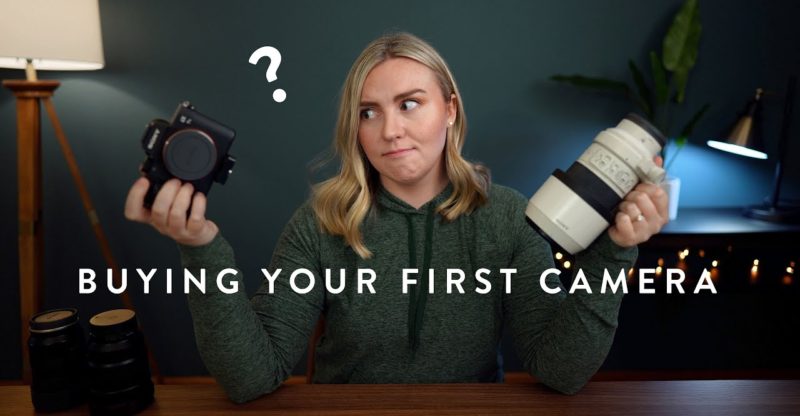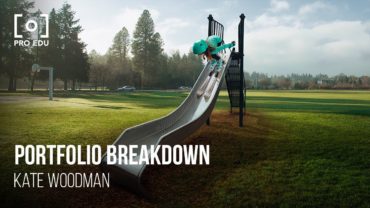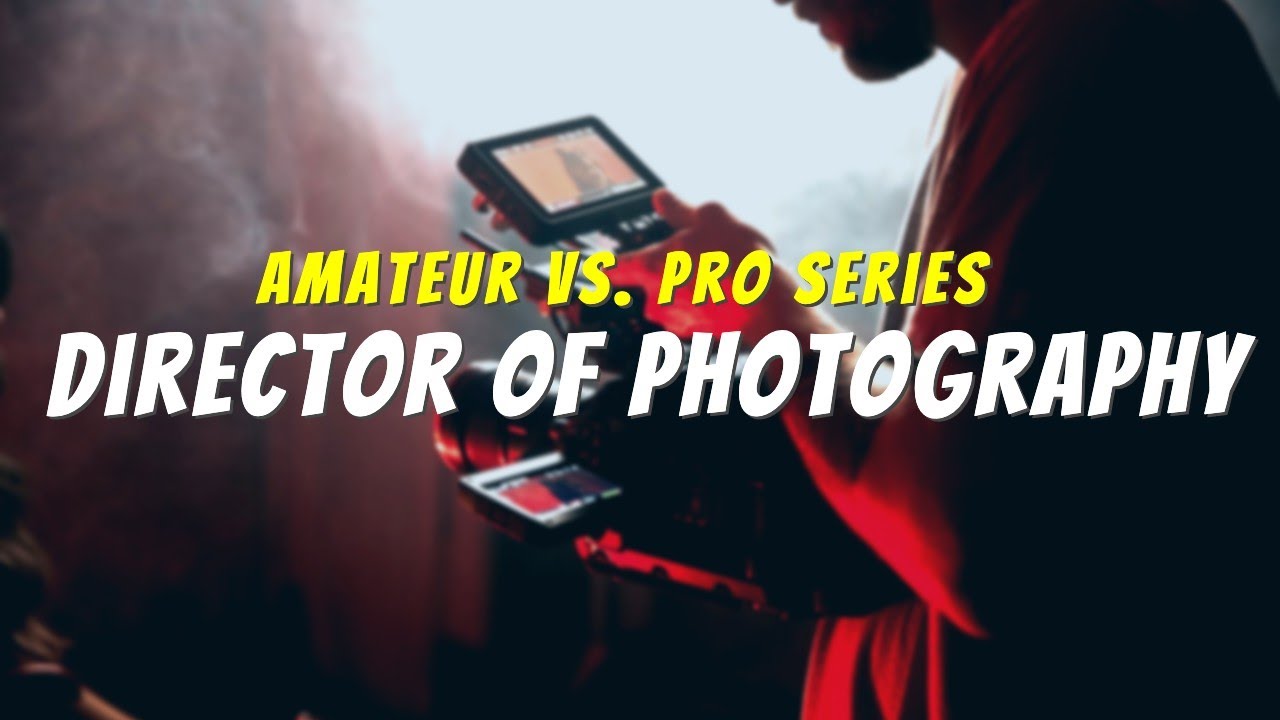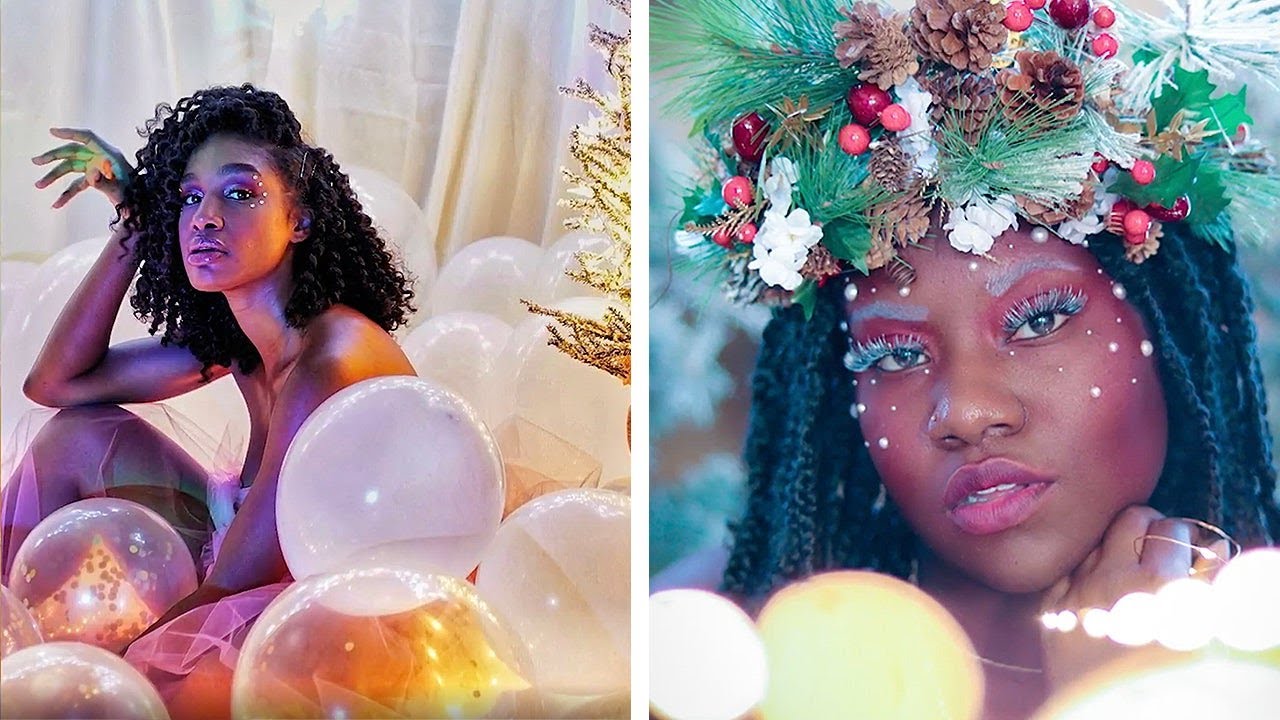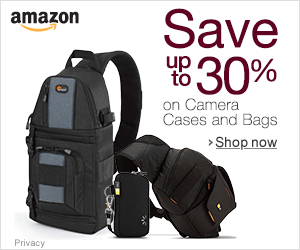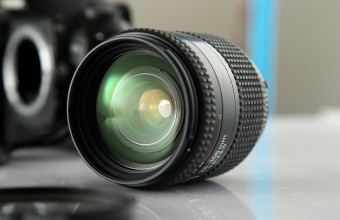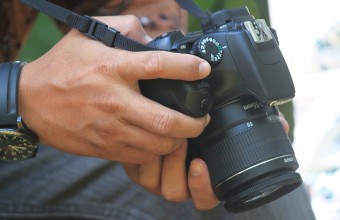Buying Your First Camera? 6 Things To Consider When Choosing Photography Gear
– When I first started buying camera gear, and honestly, long after I
started buying camera gear, I didn't really know what to prioritize and what to look for when choosing the best setup for my needs. And I get a lot of messages
and questions from people who seem to be in a similar boat, where they're looking to
invest in their first camera and they don't really know where to start. So today I thought I'd share
some wisdom I wish I had when I first started dropping
money on camera gear. If you can, buy used. You can find so much used
gear on sites like B&H Photo, Adorama, local camera stores.
And the amazing thing about used gear is you can't tell if something is used when looking at the images it creates. Like do you know if the lens
that I'm shooting on right now was bought new or used or if it has dings or
scratches on the side? No. Do you know if my cat has peed on it? Yes. And if you missed that delightful story, I will have it linked up here. Something that I bought used is the Sony 70 to 200 F4 lens. It does have a Sharpie
mark on it, but again, looking at the images, this
creates like you don't know that it has a random Sharpie
mark on it from somebody else. It has no impact on how it performs. Gear is so expensive and buying used will make it easier to get into and might allow you to buy
some higher quality equipment on the same budget. But if you aren't buying used, my next piece of advice
is don't buy the kit lens. I don't know if this is
a controversial statement but I personally have never
had a use for a kit lens.
And by kit lens I mean that
oftentimes when you look at a mirrorless or a DSLR camera online, there's an option to buy
it with a lens included, kind of like a bundle. A lot of times it's like an
all-around zoom like a 24 to 70. You get a little bit of a discount for buying it in the bundle, so it's kind of tempting to get it. Or you can just buy the
camera body by itself. I think of a kit lens kind of how I think of a kit paintbrush. Like, you know, when you were a kid and they had like those, I think it's like the Crayola watercolors with like the circle pots.
And it always came with a kit paintbrush. But anybody who knows
anything about painting knows you should buy a specific brush for what you're looking to paint. That's kind of how I
feel about the kit lens. Like, yes, it can do the
job, if that's what you have. But the best thing to do really would be to buy the camera body
separately and then find out what lens is best specifically
for what you want to shoot. If you're on a budget, go for a fancy lens and a cheaper camera. There are obviously exceptions to this, if you need special capabilities
from your camera body for what you're trying to shoot. But generally speaking, my guess is that most people
are going to be happier with their setup if they
go for the fancier lens and a cheaper camera body,
if you're on a budget. If you're not on a budget,
then go for fancy everything.
But for example, when I
was first starting out, I really wanted to start taking pictures with a shallow depth of field without really blurry, creamy background. And I didn't realize that
a shallow depth of field was achieved by the lens,
not the camera body. You could have the most
expensive mirrorless camera on the market right now and
if you don't have a lens on it with a wide enough aperture, you are not going to be able
to create images like this. This is done with the lens, usually a more expensive lens because the wider the aperture gets, the more expensive it gets. Right now, I'm shooting on
a lens with a 1.4 aperture. This is the Sony 24 millimeter GM. This lens is amazing,
especially for shooting in tighter places because
that's a wide field of view but it still has that very
shallow depth of field, as you can see there.
And 10 times out of 10
for shooting these videos, I would choose to keep this
lens and put it on a cheap body than to keep an expensive body
and put a cheaper lens on it. Because if I was shooting
on a kit lens right now, which usually has a
minimum aperture of F4, you would not get a lot
of background separation. There would be no blur back behind me. You're investing in a lens ecosystem. Camera bodies come and go,
but lenses are forever. That's the way that I think about it. Every camera brand has
a unique lens mounts. So this part right here is made specifically for Sony cameras. I couldn't take this lens and
go put it on a Canon camera.

Also lens technology doesn't update as often as camera body technology, so once you've bought a lens,
like you've kind of bought it. They're not gonna come out
with a new one a year later. It's not that frequent. It's definitely not as
frequent as camera bodies. So the idea is you're going to
start growing this collection of lenses that you like to shoot with. And then what you'll do is
as new camera bodies come out or you want to upgrade your tech there, you're just gonna keep
buying the new camera bodies from the same brand and all of your lenses will be compatible. So when choosing a brand
and a system to go with, take a look at the lenses. I didn't look at lenses at all when I started buying cameras. I didn't pay any attention to that.
And this was a huge factor for me when I decided to make the switch to Sony. There are so many lenses in Sony's lineup but there are also so
many third-party lenses that are amazing and
affordable and so great if you're trying to build
your system on a budget. Tamron makes a bunch of lenses
for Sony that are so great, one of my favorite lenses. Probably my most used lens is from Tamron. Sigma has a lot of options. Zeiss has a lot of options. A lot of people are loyal Canon shooters because Canon has long had a reputation of having some of the
best glass on the market. Their new RF lenses look amazing. They're very expensive but they look really, really, really nice. So pay attention to the lens
system you're buying into because that is also going
to be a really big cost when building your gear setup. You can rent gear before you buy. Sometimes it really takes using a camera, feeling the ergonomics,
playing around with it, going through the menu system to see if you really vibe with it.
And if you're looking to drop
a chunk of money on a camera and you just don't really
know what you like yet, rent it for a day or two and
see what you think about it. There are a lot of companies online that will rent camera equipment. I also think a lot of local camera stores have a rental program. And then the last thing
I would tell myself back when I was buying my first
camera, is that better gear doesn't inherently make
you a better photographer.
I can spend a thousand
dollars on paints and brushes and I'm still not gonna
be able to paint anything that someone wants to look at. And similarly, buying the
fanciest camera out there isn't going to just magically
make you a great photographer. If you're already a great photographer, then yes, I think that better
gear is going to improve what you're able to shoot. But if you're first starting out and dipping your toes in and
learning how to use a camera, I think the smarter thing to do is to buy less expensive gear and then maybe save some
of that money for classes or something that will teach
you how to use that gear.
Speaking of classes, I wanna
say thank you to Skillshare for sponsoring today's video. Skillshare is an online learning community that offers thousands of classes to inspire creative and curious people. And there are so many topics on there. You can find classes on
freelance, entrepreneurship, graphic design, marketing,
lots of photography classes. There's one called the
Fundamentals of DSLR Photography by Justin Bridges that
talks about understanding your camera, learning exposure. The classes are short so they're easy to fit into
your day and your routine. And the annual membership comes out to just under $10 a month, so it's super affordable. And right now, the first 1,000
people who click the link down in my description
will get a free trial of Skillshare's premium membership to explore your creativity. So those are some things I wish I knew when I was looking to buy my first camera. I hope that this was helpful for someone.
If you're looking to start
investing in a new system, hopefully, this gave
you some ideas of things to take into consideration. If you enjoyed this video,
please give it a thumbs up, hit the subscribe button
and the notification bell, so you know when new videos are posted and I will see you guys in the next one. Bye. (chilled music).




